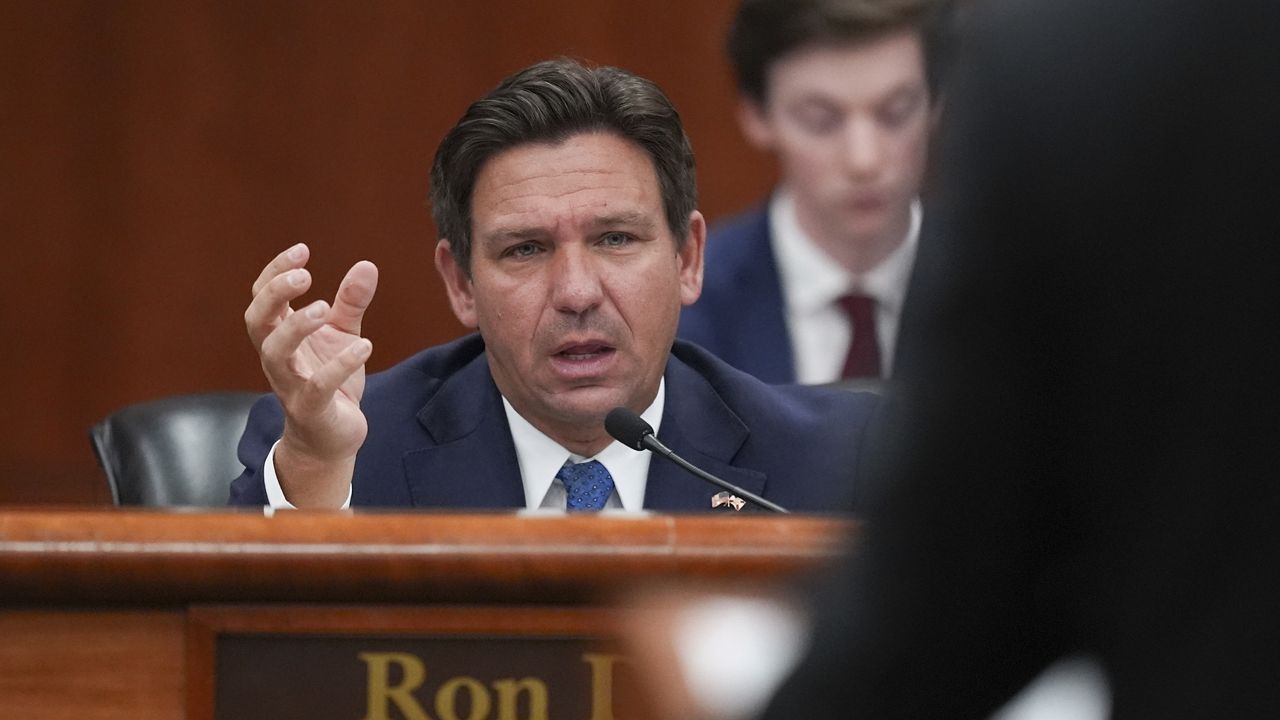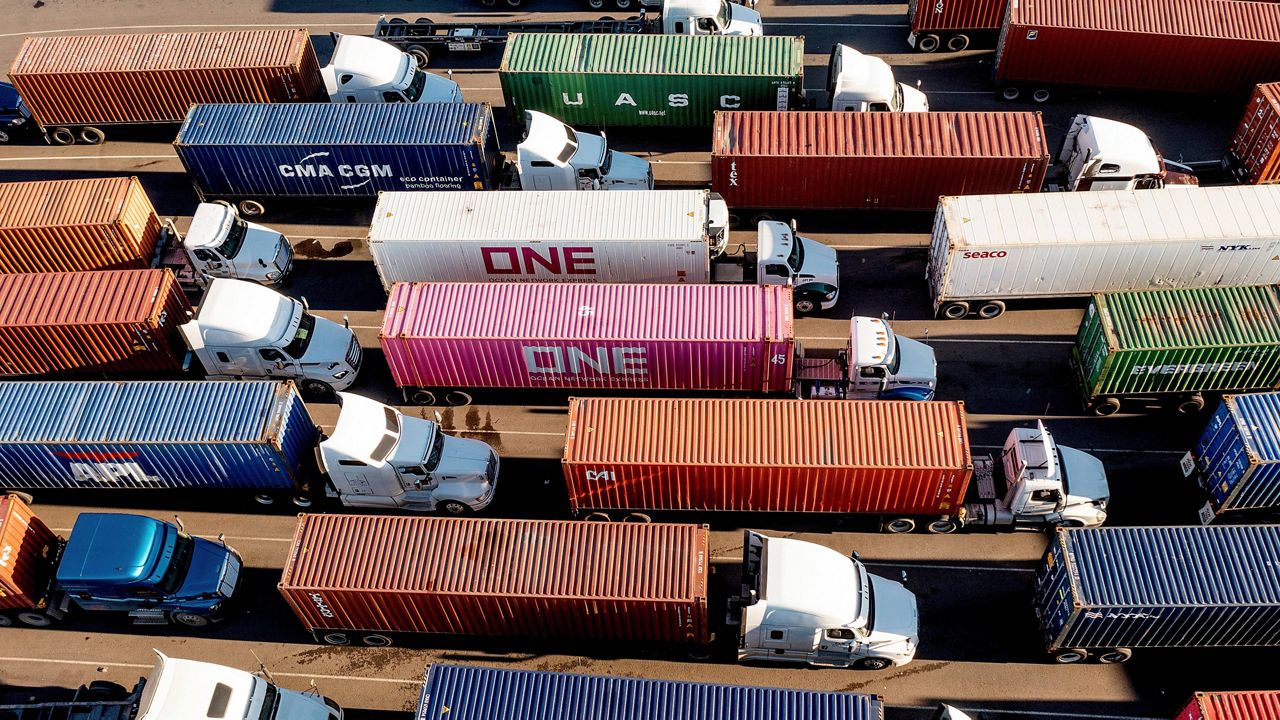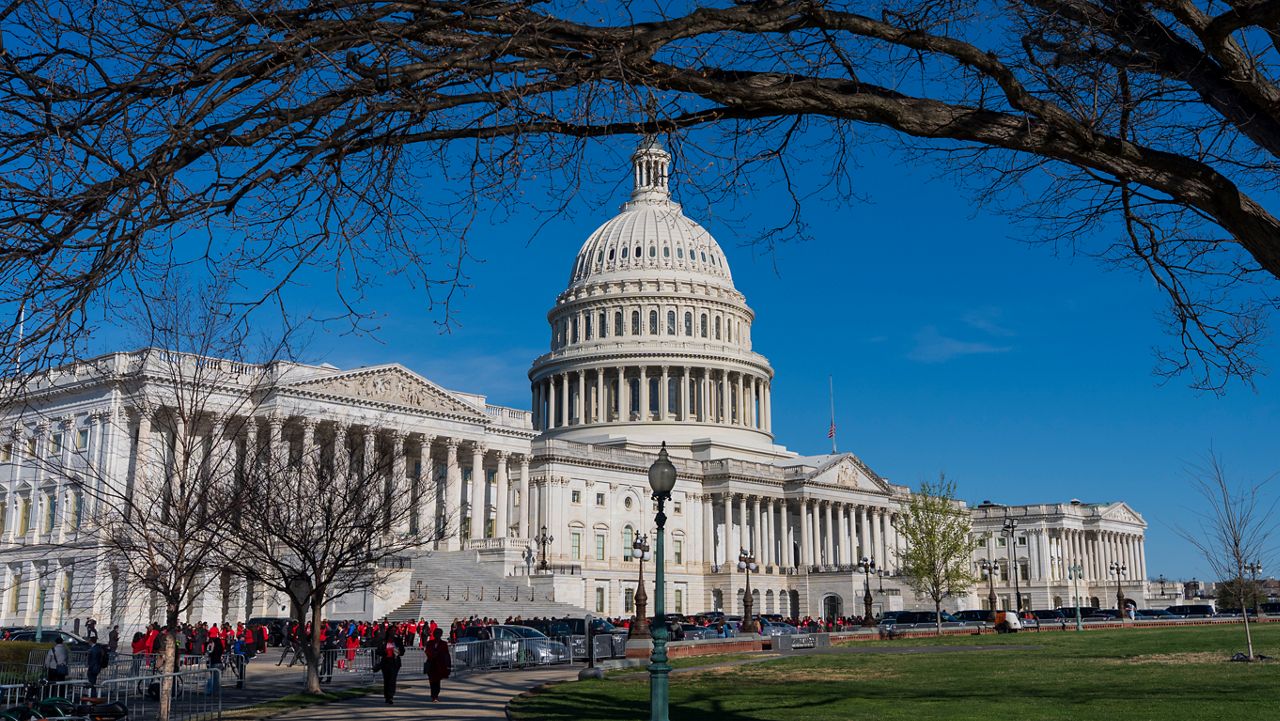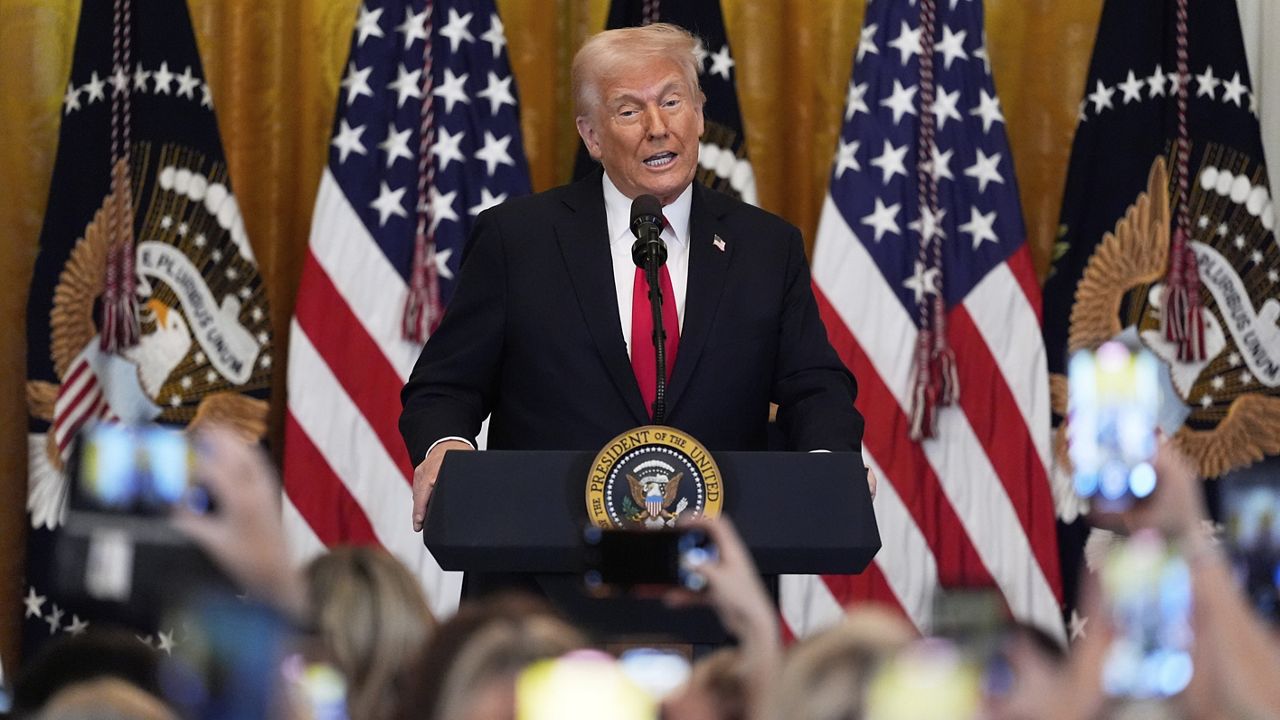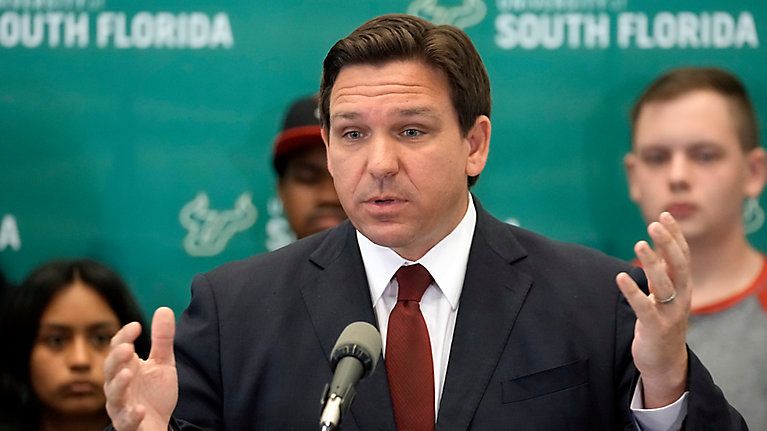President Donald Trump meets Israeli Prime Minister Benjamin Netanyahu to discuss tariff negotiations, and lawmakers in Florida consider a move to expand E-Verify requirements.
White House cancels Trump-Netanyahu press conference as leaders meet on tariffs, Gaza
Israeli Prime Minister Benjamin Netanyahu met with President Donald Trump in Washington on Monday, becoming the first foreign leader to visit Trump since he unleashed tariffs on countries around the world.
Whether Netanyahu’s visit succeeds in bringing down or eliminating Israel’s tariffs remains to be seen, but how it plays out could set the stage for how other world leaders try to address the new tariffs.
Shortly before their meeting, the White House announced Trump and Netanyahu's plans to hold a joint news conference had been canceled. The White House did not offer any immediate explanation for why it was scrapped, but Trump and Netanyahu were expected to make comments to reporters at the start of their scheduled Oval Office meeting.
Netanyahu’s office has put the focus of his hastily organized Washington visit on the tariffs, while stressing that the two leaders will discuss major geopolitical issues including the war in Gaza, tensions with Iran, Israel-Turkey ties and the International Criminal Court, which issued an arrest warrant against the Israeli leader last year. Trump in February signed an executive order imposing sanctions on the ICC over its investigations of Israel.
The prime minister soon after arriving in Washington on Sunday evening met with senior Trump administration officials, Commerce Secretary Howard Lutnick and U.S. Trade Representative Jameson Greer, to discuss the tariffs. And Netanyahu met on Monday with Steve Witkoff, Trump's special envoy to the Middle East, ahead of his sit down with the president.
Trump and Netanyahu are also expected to discuss Israel’s hoped-for annexation of parts of the occupied West Bank, which the Palestinians want as the heart of their future independent state.
Eytan Gilboa, an expert on U.S.-Israel relations, said he expected Trump to use the tariffs as leverage to force concessions from Netanyahu.
In Israel’s case, those concessions might not be economic. Trump may pressure Netanyahu to move toward ending the war in Gaza — at the very least through some interim truce with Hamas that would pause the fighting and free more hostages.
Gilboa said Trump is hoping to return from his first overseas trip — expected next month to Saudi Arabia — with some movement on a deal to normalize relations with Israel, which would likely require significant Israeli concessions on Gaza.
Florida lawmakers consider plan to expand E-verify for employers
Florida Republicans are considering a proposal to crack down on undocumented migrants and illegal labor.
The proposal, House Bill 955, is advancing in the Florida Capitol that would require all private employers to verify a new hire’s citizenship via E-Verify. Under current law, only private employers with 25 or more employees are required to use the federal verification website.
“This closes that gap and makes sure that workforce integrity is uplifted and we are making sure that every worker in the state is authorized to do so legally,” said Clearwater Republican State Rep. Berny Jacques, the bill sponsor.
Florida would join approximately nine states that require all private employers to use E-Verify, according to the National Conference of State Legislatures. Another 22 require E-Verify for some private and public employers.
Democratic House Minority Leader Fentrice Driskell, though, worried that a crackdown on employment in the state would worsen Florida's current economic situation.
“I just don’t think that this is the time to mess with our economic drivers in Florida,” the Tampa Democrat said. “Let’s get out of this historic market collapse first. I think we should maybe temporarily postpone this bill and maybe revisit it later.”
Florida law threatens fines against companies found in non-compliance with E-Verify requirements. According to a Florida House analysis, three violations within a 24-month period would result in a $1,000 per-day fine until the company proves compliance.
Approximately 56% of undocumented workers in Florida are employed at a business that is not required to use E-Verify under current law, according to the Center for Immigration Studies.






